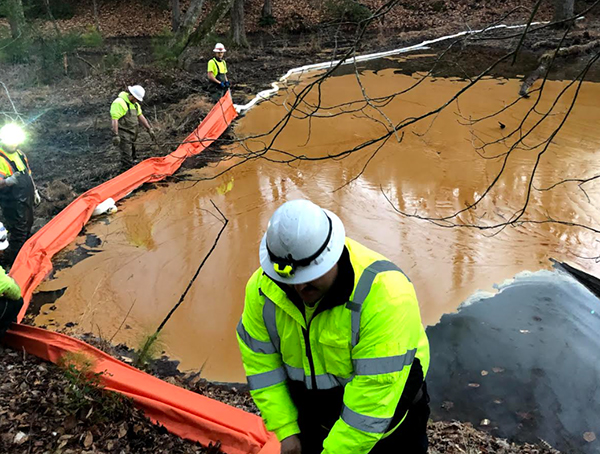Home | OR&R Research Projects | New Research on the Chemistry of Non-Petroleum Oils

New Research on the Chemistry of Non-Petroleum Oils
Non-petroleum oils are a class of oils regulated by the U.S. EPA and include animal fats, oils, and greases, such as from fish and marine mammals; vegetable oils, from seeds, nuts, fruits, and kernels; and wood-derivative oils, such as resin/rosin.
OR&R concluded a project in 2022 that supplements the current literature with chemical profiles for high priority non-petroleum oils. The primary purpose of this project was to build a reference library of non-petroleum oils to aid in source identification of spilled substances.
Using gas chromatography/mass spectrometry methods, oil chromatographic profiles were generated for a range of non-petroleum oils and waxes, including commercially available and widely transported vegetable oils (e.g., canola, soybean, coconut, and olive oils), biodiesels derived from canola oil and palm oil, as well as fish oil transported in bulk form. These records will be referenced in active spills as an identification starting point, aiding the response efforts of NOAA OR&R and other response agencies.
Future research may target adding these profiles and other non-petroleum oils that are transported in bulk (e.g., cod liver oil, palm oil, peanut oil, tallow) to the NOAA ADIOS Oil Database, along with other physical and chemical properties of these oils that are important for response and remediation (i.e., density, viscosity, emulsification, etc.).
Why is This Research Important?
Non-petroleum oils are an ever-growing component of global bulk transport; however, there is minimal data on the chemical and physical properties of these oils. The increase in global transport, as well as other recent incidents, have highlighted the need for advancements in extraction methods and analytical identification of non-petroleum oils.
For More Information Visit:
NOAA Factsheet: Non-Petroleum Oil Spills
Articles about non-petroleum oils:
 An official website of the United States government.
An official website of the United States government. 